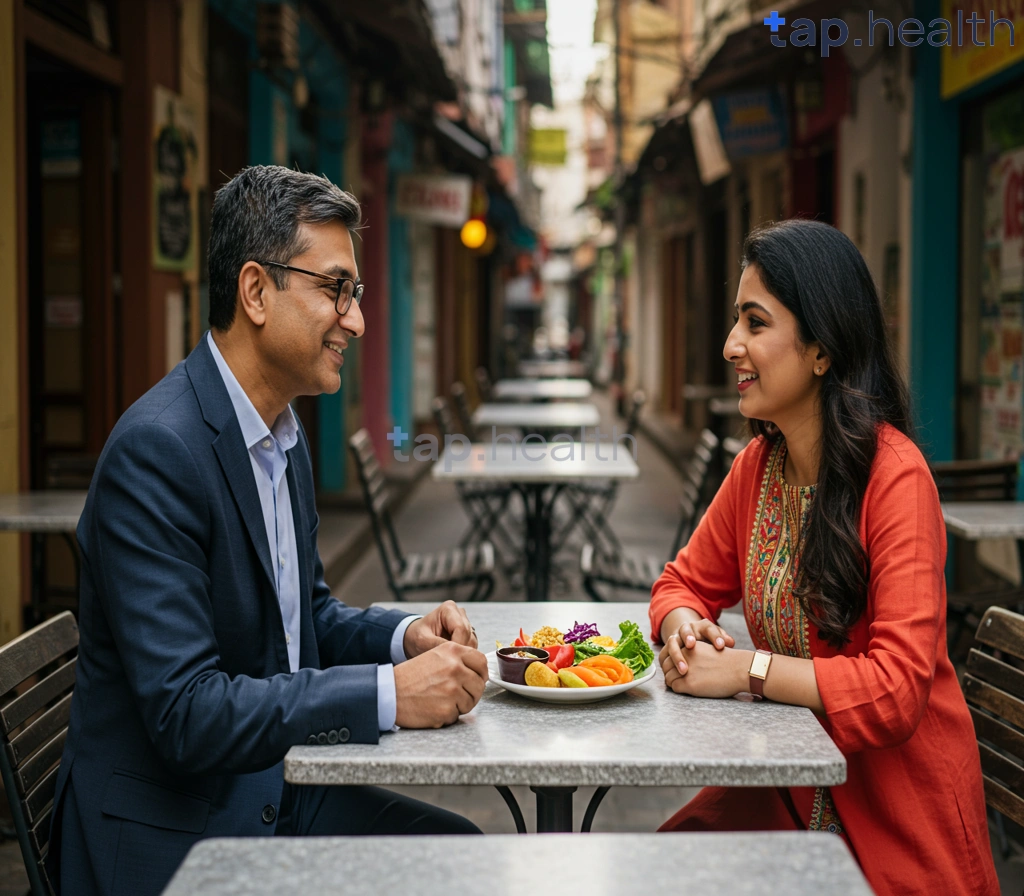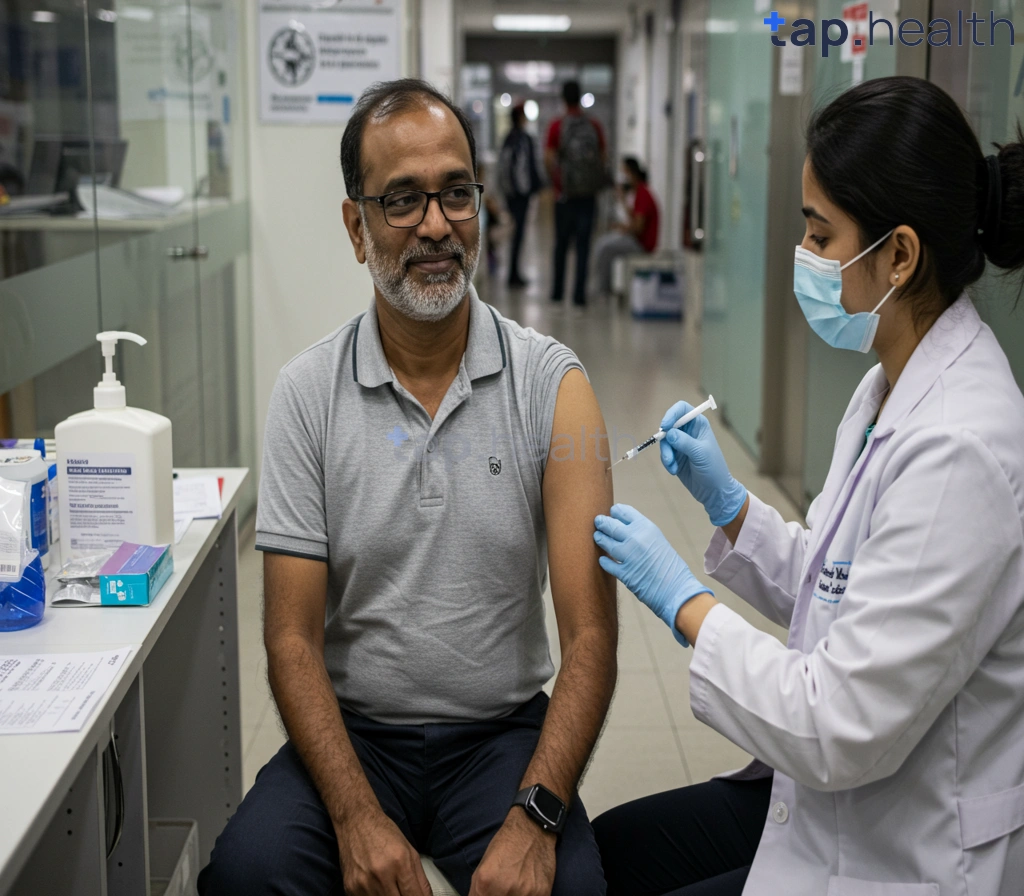Table of Contents
- Dietary Fat and Insulin Resistance: A Balancing Act
- Understanding the Role of Fat in Blood Sugar Control
- Best Fats for Insulin Sensitivity: A Diabetes-Friendly Diet
- Improve Insulin Sensitivity Naturally: The Power of Healthy Fats
- Saturated vs. Unsaturated Fats: Which Is Best for Blood Sugar?
- Frequently Asked Questions
- References
Living with diabetes often feels like navigating a minefield of dietary restrictions. One of the most confusing aspects? Understanding the role of fat in managing blood sugar. This blog post dives into the crucial topic of Improving Insulin Sensitivity: The Role of Dietary Fat in Diabetes. We’ll explore how choosing the right kinds of fats can significantly impact your insulin response and overall health, helping you to better manage your condition. Forget the restrictive fad diets; we’ll focus on practical, evidence-based strategies to help you make informed choices about your diet. Let’s get started!
Dietary Fat and Insulin Resistance: A Balancing Act
The relationship between dietary fat and insulin resistance is complex, especially crucial for individuals in India and other tropical countries where dietary habits significantly influence diabetes prevalence. Over 80% of Type 2 diabetics experience insulin resistance as a primary underlying factor, highlighting the need for careful consideration of fat intake. This isn’t about eliminating fat entirely, but rather understanding which types of fats support insulin sensitivity and which hinder it.
Understanding the Impact of Different Fats
Saturated fats, prevalent in many traditional Indian dishes like ghee and coconut oil, can negatively impact insulin sensitivity when consumed in excess. Conversely, unsaturated fats, found abundantly in nuts, seeds, avocados, and olive oil, are often associated with improved insulin sensitivity. The key lies in moderation and mindful selection. For example, while ghee is culturally significant, limiting its consumption and opting for healthier unsaturated fats can contribute to better blood sugar control.
Practical Tips for Managing Dietary Fat in India and Tropical Regions
Incorporating foods rich in monounsaturated and polyunsaturated fats into your daily diet is crucial. This might involve adding a handful of almonds to your breakfast, using olive oil for cooking, or incorporating more fish into your meals. Furthermore, limiting consumption of fried foods and processed snacks high in saturated and trans fats is essential. Remember to consult a doctor or registered dietitian for personalized advice tailored to your specific needs and dietary preferences within the context of your regional cuisine. They can help you create a balanced meal plan that optimizes your fat intake for improved insulin sensitivity and overall health. For more in-depth information on improving insulin sensitivity, you might find our article on How to Improve Insulin Sensitivity with Diet and Exercise helpful. Learning about Effective Anti-Inflammatory Diet Strategies to Boost Insulin Sensitivity can also be beneficial in your journey towards better health.
Understanding the Role of Fat in Blood Sugar Control
Managing blood sugar levels is crucial, especially in regions like India and other tropical countries where diabetes prevalence is high. A significant factor often overlooked is the type of dietary fat consumed. While excessive fat intake is generally discouraged, the impact of different fats on insulin sensitivity varies considerably. Research shows that daily consumption of sugary beverages raises diabetes risk by 26%, highlighting the importance of focusing on healthy dietary choices beyond just sugar reduction.
Good Fats vs. Bad Fats for Insulin Sensitivity
Unsaturated fats, found abundantly in avocados, nuts, seeds, and olive oil, are beneficial for improving insulin sensitivity. These healthy fats help regulate blood sugar levels and reduce inflammation, both crucial for preventing and managing diabetes. In contrast, saturated and trans fats, prevalent in processed foods, fried snacks, and many traditional South Asian dishes, can negatively impact insulin function, leading to increased blood sugar and heightened diabetes risk. Consider substituting ghee (clarified butter) with healthier options like coconut oil (in moderation), which contains medium-chain triglycerides that metabolize differently than other fats.
Practical Tips for Indian and Tropical Diets
Prioritizing whole foods, including vegetables, legumes, and lean protein sources, is key. Focus on incorporating healthy fats into your diet while minimizing unhealthy fats. For example, choose grilled fish over fried, and opt for salads dressed with olive oil instead of creamy dressings. These small changes, when consistently implemented, can significantly improve insulin sensitivity and contribute to better overall health. Remember, consulting a healthcare professional or registered dietitian is essential for personalized dietary guidance, especially if you have diabetes or are at high risk. For more information on maintaining healthy blood sugar levels, see our article on Blood Sugar Levels. Understanding the connection between weight management and blood sugar control is also crucial; you can learn more in our piece on Weight Loss and Blood Sugar Levels: Simple Connection Explained.
Best Fats for Insulin Sensitivity: A Diabetes-Friendly Diet
Managing blood sugar levels is crucial for individuals with diabetes, especially in regions like India and tropical countries where dietary habits significantly impact health. A key aspect of this management is understanding the role of dietary fat in improving insulin sensitivity. Contrary to past beliefs, not all fats are created equal. Choosing the right fats can be instrumental in regulating blood sugar and preventing spikes. Focusing on healthy fats is key, especially when managing carbohydrate intake, generally recommended to be around 45–60 grams per meal for most people with diabetes, although this varies by individual needs. For more information on carbohydrate management, check out our article on Low-Carb vs. Moderate-Carb Diets for Diabetes: What Works Best?
Understanding the Impact of Fats
Saturated and trans fats, prevalent in many processed foods and fried dishes common in some Indian and tropical cuisines, can negatively impact insulin sensitivity. These fats should be minimized. Instead, prioritize monounsaturated and polyunsaturated fats. Think of the abundance of healthy oils readily available: coconut oil, olive oil (popular in Mediterranean diets, and increasingly in India), and various nut oils. These oils are rich in beneficial fatty acids that support healthy insulin function. Remember to use these oils in moderation, as even healthy fats contribute to calorie intake.
Actionable Tips for an Insulin-Sensitive Diet
Incorporate foods rich in healthy fats into your daily meals. This includes avocados, nuts (almonds, cashews, walnuts – readily available in India), seeds (flax, chia, sunflower), and fatty fish like salmon (if accessible and affordable). These foods not only provide essential fatty acids but also offer fiber and other nutrients that contribute to overall well-being and improved blood sugar control. Prepare your meals using healthy cooking methods, opting for baking, grilling, or steaming over deep frying. For a comprehensive list of beneficial foods, see our guide on 20 Best Foods for People with Diabetes – Tap Health.
Region-Specific Considerations
In India and other tropical regions, incorporating locally sourced healthy fats into traditional dishes can be a delicious and effective strategy. For example, using coconut oil in South Indian cooking or incorporating nuts and seeds into curries can enhance flavour and improve insulin sensitivity. Consult with a registered dietitian or healthcare professional for personalized advice tailored to your specific needs and dietary preferences within your region. They can help you create a diabetes-friendly meal plan that incorporates the best fats for your individual situation.
Improve Insulin Sensitivity Naturally: The Power of Healthy Fats
Understanding the Link Between Diet and Insulin Resistance
In India and across many tropical countries, rising rates of diabetes are alarming. A significant contributor is the high consumption of sugar; India’s per capita sugar consumption stands at a concerning 20 kg/year, increasing diabetes risk by a staggering 18%. But managing diabetes effectively isn’t just about avoiding sugar; it’s about understanding the crucial role of dietary fats. Contrary to popular belief, certain healthy fats can actually improve insulin sensitivity, helping your body regulate blood sugar more effectively.
The Benefits of Healthy Fats for Insulin Sensitivity
Instead of fearing fats, focus on incorporating healthy sources like monounsaturated and polyunsaturated fats into your diet. Think avocados, nuts (almonds, cashews, walnuts are popular in India), seeds (chia, flax, sunflower), and olive oil—all readily available and culturally relevant across many tropical regions. These fats help improve insulin signaling, reducing insulin resistance. They also promote satiety, helping you manage your overall calorie intake and weight, further supporting blood sugar control. For a deeper understanding of how different food groups impact insulin response, you might find our article on Dairy and Alternatives: Understanding Their Impact on Insulin Response helpful.
Practical Steps for Incorporating Healthy Fats
Start small! Add a handful of nuts to your breakfast, drizzle olive oil on your salads, or include avocado in your lunchtime meals. Experiment with using coconut oil (common in tropical cuisines) in moderation for cooking, but be mindful of saturated fat intake. Remember, the key is to replace unhealthy saturated and trans fats with healthier options. Consult a doctor or registered dietitian for personalized advice tailored to your specific health needs and dietary preferences. This is particularly important given the varied dietary habits across different regions of India and other tropical countries. Making gradual, sustainable changes is key to long-term success in managing diabetes and improving insulin sensitivity. And remember that maintaining a strong immune system is also crucial; check out our blog on Boosting Immunity While Managing Diabetes for valuable tips.
Saturated vs. Unsaturated Fats: Which Is Best for Blood Sugar?
Understanding the impact of dietary fat on insulin sensitivity is crucial, especially in managing blood sugar levels, particularly relevant in India and other tropical countries where dietary habits significantly influence diabetes prevalence. A normal fasting blood sugar level is between 70–99 mg/dL; however, levels of 100–125 mg/dL indicate prediabetes, and 126 mg/dL or higher signifies diabetes. The type of fat consumed plays a pivotal role.
Saturated Fats: Proceed with Caution
Saturated fats, commonly found in red meat, butter, and coconut oil, are often linked to increased insulin resistance. Consuming excessive amounts can hinder the body’s ability to effectively utilize insulin, leading to elevated blood sugar levels. While completely eliminating saturated fats isn’t always necessary, moderation is key, especially for individuals with diabetes or prediabetes. In Indian cuisine, for example, substituting ghee (clarified butter) with healthier alternatives like olive oil or mustard oil can make a significant difference.
Unsaturated Fats: Your Blood Sugar’s Friend
Unsaturated fats, including monounsaturated and polyunsaturated fats, offer a contrasting effect. Found abundantly in olive oil, avocados, nuts, and seeds, these fats can improve insulin sensitivity and help regulate blood sugar levels. The inclusion of these fats in the daily diet, especially in the context of traditional Indian meals which often incorporate high carbohydrates, can provide a beneficial balance. Consider incorporating more salads with olive oil-based dressings, or adding nuts and seeds to your meals. Understanding what constitutes a normal blood sugar level is important. For example, is a reading of Is 65 Blood Sugar Normal? Full Analysis? Knowing the range helps in better management.
Making Informed Choices
Ultimately, achieving optimal blood sugar control requires a holistic approach. While focusing on unsaturated fats is beneficial, remember that portion control and overall dietary balance are paramount. Consulting a doctor or registered dietitian for personalized dietary advice tailored to your individual needs and regional dietary preferences is strongly recommended, especially within the context of prevalent dietary habits in Indian and tropical countries. Prioritizing healthy fats alongside a balanced diet can significantly improve insulin sensitivity and contribute to better diabetes management. If you’re concerned about higher readings, you might find the information in Is 350 Blood Sugar Normal? Expert Insights Revealed helpful.
Frequently Asked Questions
Q1. How does dietary fat affect my blood sugar and insulin sensitivity?
Dietary fat significantly impacts your blood sugar control and insulin sensitivity. Saturated fats, often found in excess in traditional Indian and other tropical cuisines, can hinder insulin sensitivity when consumed in large amounts. Conversely, unsaturated fats (from sources like nuts, seeds, avocados, and olive oil) improve insulin sensitivity.
Q2. What types of fats should I focus on including in my diet, and which should I limit?
Prioritize unsaturated fats like monounsaturated and polyunsaturated fats found in foods such as nuts, seeds, avocados, and olive oil. Limit saturated fats (found in many fried foods and traditional dishes) and trans fats (found in processed foods).
Q3. What are some practical steps I can take to improve my insulin sensitivity through diet?
Incorporate foods rich in unsaturated fats into your daily meals. Choose healthy cooking methods and avoid excessive frying. Consult a healthcare professional for personalized dietary advice tailored to your needs and regional cuisine.
Q4. Why is this information particularly relevant to people living in tropical regions like India?
Tropical regions, including India, have a high prevalence of diabetes. Many traditional dishes in these regions may be high in saturated fats, which can negatively affect insulin sensitivity and blood sugar control. This makes focusing on healthy fats especially crucial for managing diabetes in these areas.
Q5. Are there any potential challenges or limitations to improving insulin sensitivity through diet alone?
While dietary changes are crucial, they may not be sufficient for everyone. It’s essential to consult a healthcare professional for a comprehensive approach that may include other lifestyle modifications and/or medication, depending on your individual health status.
References
- A Practical Guide to Integrated Type 2 Diabetes Care: https://www.hse.ie/eng/services/list/2/primarycare/east-coast-diabetes-service/management-of-type-2-diabetes/diabetes-and-pregnancy/icgp-guide-to-integrated-type-2.pdf
- Electronic Health Records-Based Data-Driven Diabetes Knowledge Unveiling and Risk Prognosis : https://arxiv.org/pdf/2412.03961




